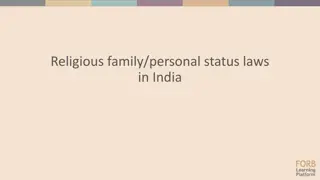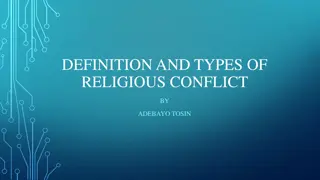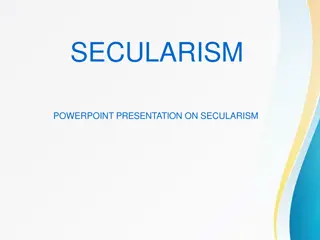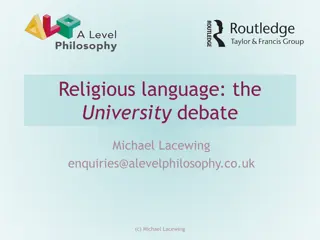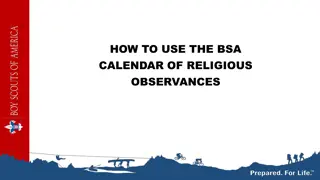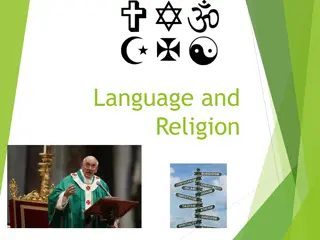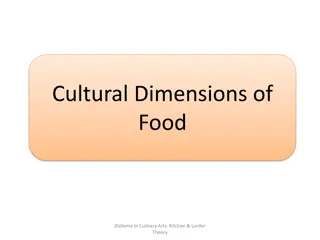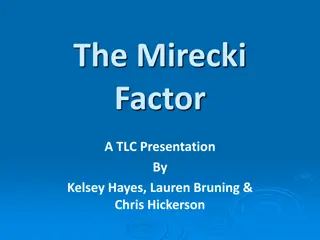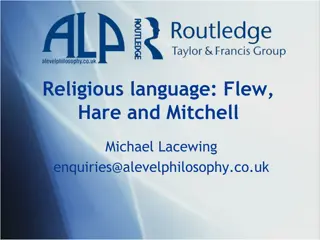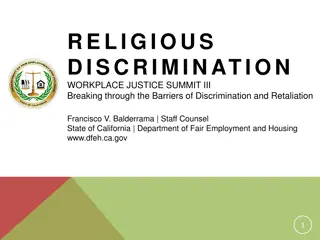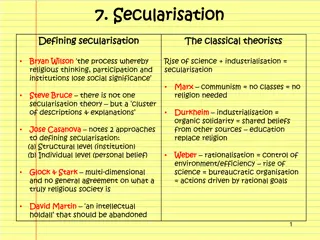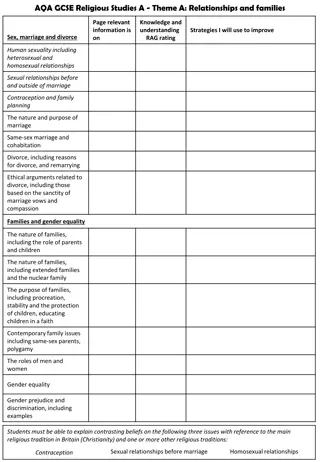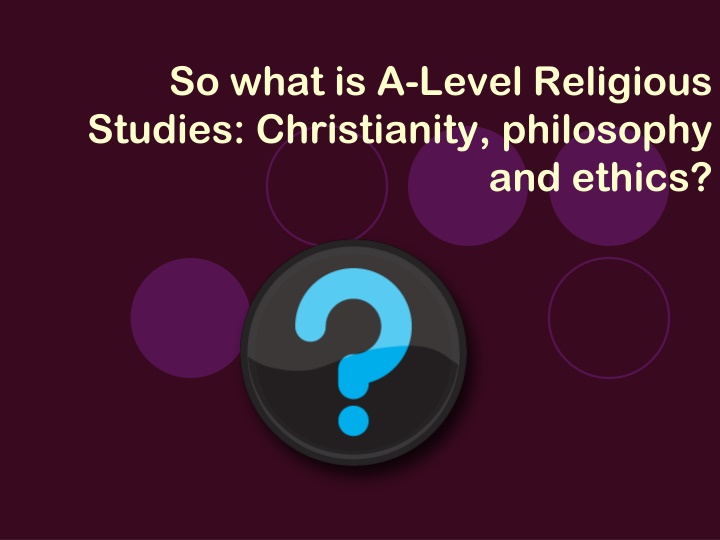
Exploring A-Level Religious Studies: Christianity, Philosophy, and Ethics
Dive into the world of A-Level Religious Studies focusing on Christianity, philosophy, and ethics. Discover the curriculum, expectations, exam details, recommended textbooks, bridging tasks, and key objectives related to ethics. Engage with moral dilemmas and ethical theories to enhance your understanding of moral decision-making.
Download Presentation

Please find below an Image/Link to download the presentation.
The content on the website is provided AS IS for your information and personal use only. It may not be sold, licensed, or shared on other websites without obtaining consent from the author. If you encounter any issues during the download, it is possible that the publisher has removed the file from their server.
You are allowed to download the files provided on this website for personal or commercial use, subject to the condition that they are used lawfully. All files are the property of their respective owners.
The content on the website is provided AS IS for your information and personal use only. It may not be sold, licensed, or shared on other websites without obtaining consent from the author.
E N D
Presentation Transcript
So what is A-Level Religious Studies: Christianity, philosophy and ethics?
Expectations To be punctual To meet deadlines To keep on top of reading To try your best
Y e a r 1 2
Y e a r 1 2
Y e a r 1 2
The exam You are studying for the Advanced level (A-level) qualification in Religious Studies: Philosophy and ethics H573 You will cover the philosophy part of the course with Mrs Halfpenny The ethics part of the course with Mr Wildey Developments in Christian thought-taught by both Mrs Halfpenny and Mr Wildey
Textbooks It is in your best interest to get a textbook for use at home. You will get guided reading every week from at least philosophy or ethics and the questions will be based on one of the main texts we use.
Textbooks Religious Studies for OCR: Christianity, Philosophy and Ethics AS and Year 1 Libby Ahluwalia & Robert Bowie ISBN: 978-0-19-839285-9 Amazon 25.50
Bridging tasks Complete over the summer Bring evidence of what you have done in September
Objectives: 1. To define ethics. 2. To encourage students to consider how they come to moral decisions. 3. To introduce three ethical theories and consider how each would approach moral issues.
LOOK AT THE MAKING MORAL DECISIONS SHEET. Consider each of the moral dilemmas outlined on the sheet. What would you do in each situation? How did you reach your conclusions?
WHAT IS ETHICS? The term ethics comes from the Greek word ethikos, meaning character . It can be translated as custom and refers to the customary way people act in society. Ethics is a branch of philosophy concerned with morality. Today modern ethics is concerned with 4 fundamental questions:
2. What is meant by the moral terms good/bad and right/wrong?
4. What should the individual or society do in order to be morally good or right?
From the earliest times, philosophers have attempted to answer these questions. They have put forward a variety of theories explaining how we should come to moral decisions. Here are 4 of them.
UTILITARIAN ETHICS A THEORY PUT FORWARD BY JEREMY BENTHAM (His mummified body is still on show at King s College, London!)
When you are making an ethical decision you must: a. decide what action would bring the greatest happiness to the greatest number of people; b. or what action would bring the least amount of unhappiness to the most people. c. not take personal relationships into account.
NATURAL LAW ETHICS A THEORY PUT FORWARD BY THOMAS AQUINAS.
When you make an ethical decision you must: a. use your reason; b. follow the first precept (rule) which is to preserve life; c. as far as possible keep to what is natural, i.e. part of the natural scheme of things.
KANTS ETHICS A THEORY PUT FORWARD BY IMMANUEL KANT.
When you make an ethical decision, you must: a. act only out of duty, not for any ulterior motive; b. only do something that you would be happy for everyone else to do in the same situation.
CHRISTIAN ETHICS A THEORY DERIVED FROM THE BIBLE, ESPECIALLY THE TEACHINGS OF JESUS AND SAINT PAUL.
When you make an ethical decision you must: a. Consider Jesus main teachings - love God - love your neighbour - love your enemy - do not judge others - treat others as you would like to be treated.
NOW RETURN TO THE MAKING ETHICAL DECISIONS SHEET. How would a utilitarian, Natural Law theorist, a Kantian theorist and a Christian decide how to act in each of the dilemmas? Which ethical theory do you most identify with?

